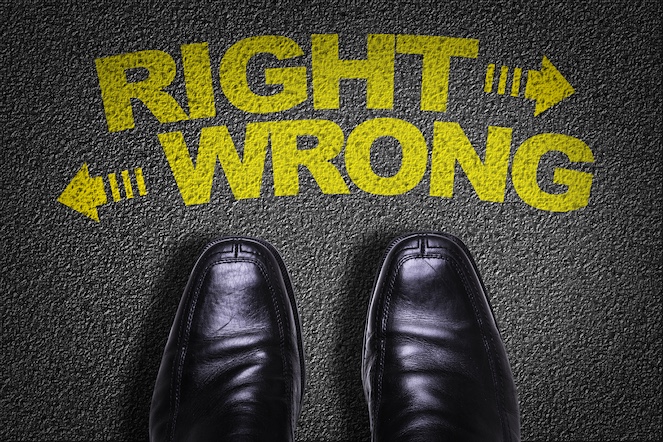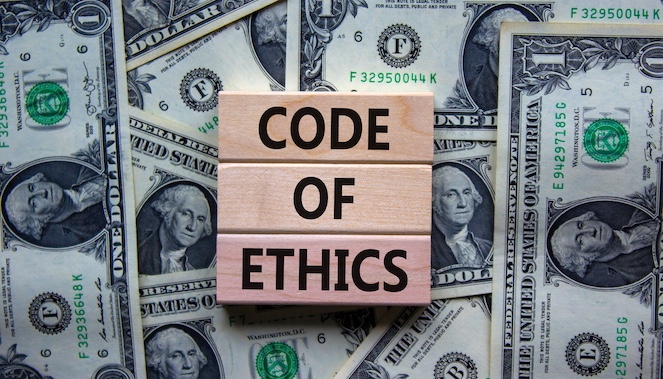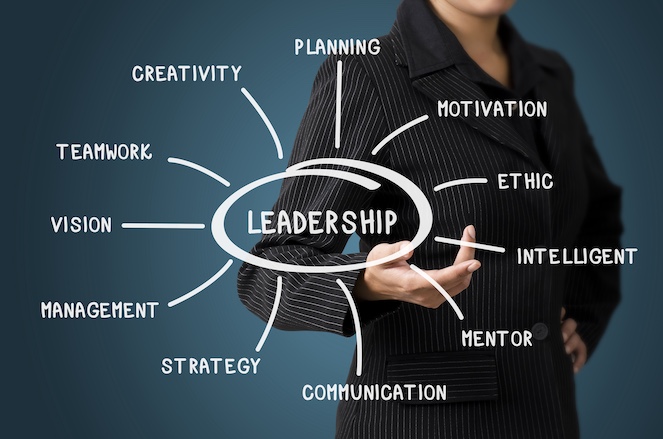On a recent business trip, I had the opportunity to speak with two very successful leaders, one a college soccer coach and the other the CEO of a large company. Both were dealing with team ethics, which were leading to struggling performance. The soccer coach told me about how the political nature of our country was causing ethical breakdowns in how the team members communicated to each other and how they treated one another on and off the field. This behavior resulted in poor teamwork and therefore negative outcomes.
The CEO of the large company similarly described low ethical behavior within her company and with her competition. Some of the issues she highlighted within her company were, not communicating in a healthy manner, calling each other out more, not showing up for work, and mental wellness issues. She also said she was witnessing her counterparts from other companies cutting corners to get ahead. These breakdowns made working together in her own company a disheartening challenge, and watching the drop in ethics from competitors meant she could lose ground with her own customers.
In both instances, and with both leaders, the challenges were to mitigate how to remain ethical in leadership versus giving in to the challenges facing their leadership and their teams. The coach has to answer to his administration. He must win. Does he choose to win at all costs, or does he continue to be ethical, allowing college sports to be a conduit for student athletes to grow and develop?
In the same regard, the CEO has to answer to her investors and customers. Does she choose unethical behaviors to win, or does she work with her team to overcome their differences and continue to do things the right way?

These are just two recent examples of the turbulent, frustrating, perceived decline in ethical behaviors that are currently challenging leaders and teams.
Our country, and quite frankly the world, is in the midst of unrest. We are more divided than ever before. As a result, teams and leaders, at every level, are being challenged on a daily basis to either give into a society where we live with a lower standard of ethical behavior, or stand up for what is right and treat the people we work with, our communities, teams, and society as a whole with a higher standard of ethical behavior.
Leaders across industries are facing intense pressure, unprecedented scrutiny, and an overwhelming number of distractions—some of them deeply serious. In these challenging times, ethical leadership is more important than ever. But how do ethics play a role in turbulent moments? How can leaders stay focused when even ethical decisions are attacked by their followers? And why is it so easy for leaders to stray from good ethical behavior and strong morals?
Understanding Ethics and Morals
To answer these questions, we must first define ethics and morals. According to the dictionary, ethics are “moral principles that govern a person’s behavior or the conduct of an activity.” Morals, on the other hand, are concerned with the principles of right and wrong behavior and the goodness or badness of human character. In simpler terms, morals represent a person’s standards of behavior regarding what is right and wrong, while ethics apply those standards in decision-making.
If ethics guide behavior and morals define personal beliefs about right and wrong, it might seem straightforward to lead with ethical behavior and build ethical companies and communities—even in times of chaos. However, history and current events show that ethical leadership is anything but simple.

Why Ethical Leadership is Challenging
If leading ethically were easy, we wouldn’t see major corporations, universities, hospitals, police departments, and other institutions incorporating a Code of Ethics into their operations. These codes exist because organizations recognize that ethical behavior requires structure and reinforcement. Most companies introduce a Code of Ethics as part of their onboarding process, setting clear expectations for conduct and decision-making.
A Code of Ethics serves as a guide to appropriate decision-making within an organization. When difficult situations arise, it provides a framework for making ethical choices. Yet, despite having these guidelines in place, ethical failures are still prevalent both within teams and in society. This raises an important question: if leaders are expected to lead with ethics and morals, why is there so much corruption in the country and the world?

The Temptation to Stray from Ethical Behavior
There are several reasons why even well-intentioned leaders struggle to maintain ethical leadership:
- Pressure to Perform – Leaders often face intense pressure to deliver results, whether it’s financial success, political wins, or social influence. This pressure can lead to cutting corners, justifying questionable decisions, or compromising ethics for short-term gains.
- Power and Influence – Power can be intoxicating. When leaders hold significant influence, they may feel above the rules, leading to unethical behavior that goes unchecked. History has shown that absolute power often leads to corruption.
- Ethical Relativism – In a world where cultural and moral perspectives vary widely, some leaders rationalize unethical behavior by convincing themselves that ethics are subjective. When right and wrong become blurred, unethical choices become easier to justify.
- Fear of Backlash – Ethical decisions are not always popular. In today’s highly polarized world, leaders who make ethical choices may face resistance from their followers, stakeholders, or peers. This fear of backlash can discourage leaders from standing firm in their values.
- Lack of Accountability – When unethical behavior is not met with consequences, it continues. If an organization, government, or institution lacks strong accountability measures, leaders may feel emboldened to act in ways that serve personal interests rather than ethical principles.

How Leaders Can Stay Ethical in Times of Chaos
Even with these challenges, and even with all the different responsibilities leaders have, ethical leadership is not impossible. In fact, it is the cornerstone of building resilient businesses, teams, communities, and institutions. Here are some ways leaders can stay ethical, even during difficult times:
Commit to a Strong Ethical Foundation
Leaders must define their own core values, mission, and purpose. They must align with their organization’s ethical standards. By having a clear understanding of personal and professional ethics, leaders can make decisions rooted in integrity, rather than convenience.
Lead by Example
Ethical leadership is most effective when demonstrated. Leaders must model the behavior they expect from others. If employees, stakeholders, or citizens see a leader acting with integrity, they are more likely to follow suit. And when leaders reward ethical behavior from their constituents, the behavior will be repeated.
Prioritize Transparency
A transparent leader is an ethical leader. Open communication about decisions, challenges, and mistakes builds trust and reduces the likelihood of unethical behavior going unnoticed. Transparency also helps mitigate misinformation and speculation. Shared communication and transparency opens collaboration, so everyone understands what comes next and feels engaged with the process.
Establish Strong Accountability Measures
A strong system of checks and balances ensures that ethical guidelines are followed. It is imperative to have these in place so that one person or entity does not have full control of the company. Organizations should have mechanisms in place to hold leaders accountable, whether through internal audits, third-party oversight, or ethical review committees.
On a personal level, find someone, or a group of people, that will let you know when you are out of line ethically. Many leaders have a trusted, sounding board, a group where they feel safe to express what they are going through and how they feel. These groups help leaders stay ethical in the choices and decisions they make.
Encourage Ethical Decision-Making at All Levels
Ethics should not be confined to the executive level. Organizations and communities must foster an ethical culture where employees, members, and citizens feel empowered to make ethical choices and voice concerns about unethical behavior.
Stand Firm in the Face of Opposition
Not all ethical decisions will be popular, but true leaders stand by their principles even when facing criticism. Navigating backlash with dignity and confidence reinforces a leader’s commitment to ethics.

The Future of Ethical Leadership
Ethical leadership is not just a philosophy—it’s a necessity. According to the Ethical Culture Report by the LRN Corporation, companies with the strongest ethical cultures outperform those with weaker ethical cultures by 50%.
In times of chaos, when moral compasses are tested, ethical leadership is what separates lasting legacies from fleeting power. Leaders who choose integrity over convenience, morality over manipulation, and transparency over secrecy will be the ones who truly inspire change.
As we continue to face unrest and uncertainty, leaders at all levels must ask themselves: What kind of legacy do I want to leave? Will I choose ethical leadership, even when it’s difficult? The answers to these questions will shape not only individual leaders but the future of all teams, including in businesses, institutions, governments, and societies as a whole.
Ethics in leadership is not about being perfect—it’s about making the right choices, even when no one is watching. And in today’s world, that is the kind of leadership we need more than ever. At Courtside Leadership, we believe that the human condition is capable of ethical leadership, and that in turn, we can reshape the future. Are you in?

